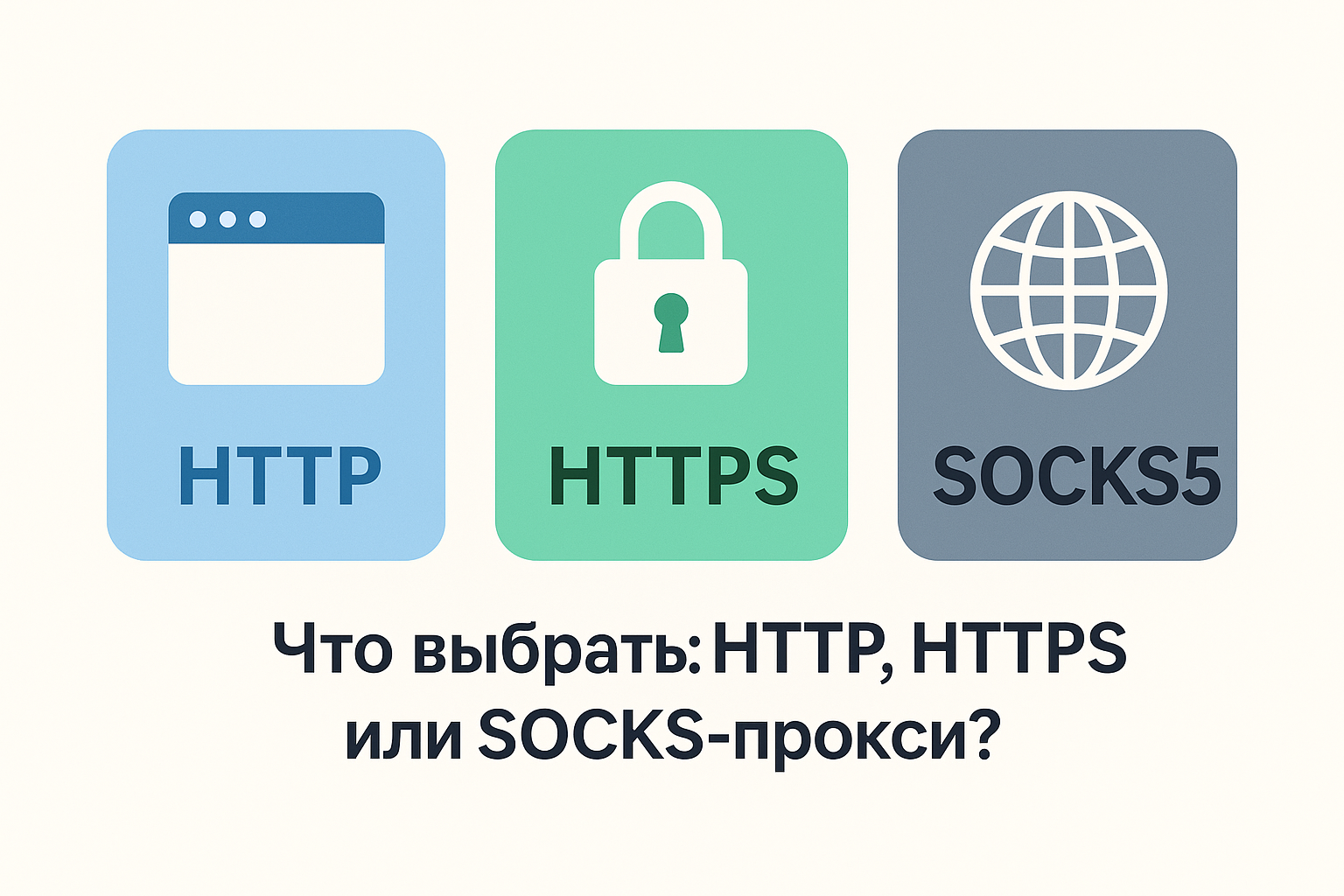When purchasing mobile proxies, it’s important to understand the differences between the popular proxy types: HTTP, HTTPS, and SOCKS5. This determines how convenient, secure, and effective they will be for your tasks.
Key differences
| Proxy type | Best for | Main features |
|---|---|---|
| HTTP | Web browsing, site scraping, automation | Handles HTTP/HTTPS requests, can cache, filter, and modify headers |
| HTTPS | Secure browsing, transferring sensitive data | Same as HTTP, but encrypts traffic between you and the proxy (TLS) |
| SOCKS5 | Games, torrents, email, messengers, any protocol | Universal, doesn’t modify data, supports TCP and UDP |
HTTP and HTTPS Proxies
These proxies are specifically designed for web traffic (browsers, scraping scripts, APIs). They can cache pages, block unwanted websites, and add headers. HTTPS proxies additionally encrypt your requests between your device and the proxy, which is useful when working over public networks.
⚠ Drawback: Only suitable for web. They can’t proxy email, games, P2P, or other non-standard protocols.
SOCKS5 Proxies
SOCKS5 is a universal proxy that doesn’t depend on data type. It simply forwards packets and is suitable for any application: games, torrents, VoIP, messengers, etc. SOCKS5 supports UDP and hides DNS requests, increasing anonymity.
⚠ Drawback: Doesn’t encrypt traffic by itself — security depends on the application protocol (e.g., HTTPS, SMTPS).
⚠ Important: Most browsers don’t support username/password authentication for SOCKS5. If your proxy requires login, the browser won’t connect directly without special settings or extensions.
Which proxy should you choose?
👉 For web browsing and scraping: HTTP or HTTPS (use HTTPS if data protection is needed).
👉 For games, P2P, or messengers: SOCKS5.
👉 For maximum anonymity: SOCKS5 with remote DNS or HTTPS proxy.
Mobile proxies supporting any of these protocols are available at LTESpace.com. Choose the one that fits your needs!


 English
English Русский
Русский



